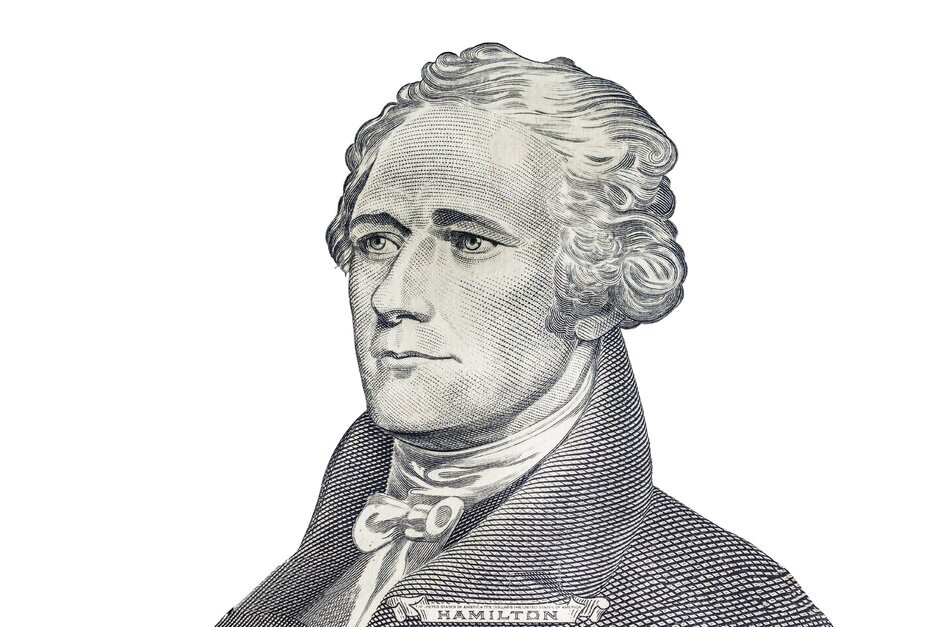Alexander Hamilton: The Visionary Founding Father of America
Alexander Hamilton was one of the most influential founding fathers of the United States of America. His remarkable legacy is undeniable, having helped to shape the economic and political structure of the country. Despite his untimely death, Hamilton's ideas continue to impact modern America, leaving a lasting imprint on the nation. In this article, we'll take a closer look at the life and accomplishments of this extraordinary man, and explore how his vision for America's future continues to shape the country today.
The Early Years of Alexander Hamilton
Alexander Hamilton was born in the West Indies in 1755, the son of a Scottish trader and a mother of French Huguenot descent. His upbringing was marred by poverty and tragedy, with his father abandoning the family when Hamilton was just a boy, and his mother dying when he was just thirteen years old. Despite these hardships, Hamilton displayed an early aptitude for learning, and was eventually sent to New York to receive a formal education.
The Revolutionary War and the Birth of the United States
In 1774, Hamilton joined a local militia in New York, and by 1776, he had become a captain in the Continental Army. It was during this time that Hamilton began to develop his ideas about America's future, arguing for a strong central government and a robust financial system that could support the fledgling nation. After the war, Hamilton was appointed as the nation's first Secretary of the Treasury by President George Washington, where he set about implementing his vision for America's economic future.
Hamilton's Economic Vision for America
As Secretary of the Treasury, Hamilton's primary focus was on building a strong and stable financial system for the country. To achieve this, he proposed a range of policies that were designed to promote economic growth and stability, including the establishment of a national bank, the creation of a system of tariffs to protect American industry, and the assumption of state debts by the federal government.
The Legacy of Alexander Hamilton
Despite his many accomplishments, Alexander Hamilton's legacy was not always appreciated in his own time. His ideas were controversial and often sparked fierce debate among his contemporaries. However, as the years have passed, Hamilton's influence on American history has become increasingly clear. Today, his face graces the ten-dollar bill, and his vision for America's economic future continues to shape the country.
Alexander Hamilton was one of the most influential founding fathers of the United States of America. His remarkable legacy is undeniable, having helped to shape the economic and political structure of the country. Despite his untimely death, Hamilton's ideas continue to impact modern America, leaving a lasting imprint on the nation. In this article, we'll take a closer look at the life and accomplishments of this extraordinary man, and explore how his vision for America's future continues to shape the country today.
The Early Years of Alexander Hamilton
Alexander Hamilton was born in the West Indies in 1755, the son of a Scottish trader and a mother of French Huguenot descent. His upbringing was marred by poverty and tragedy, with his father abandoning the family when Hamilton was just a boy, and his mother dying when he was just thirteen years old. Despite these hardships, Hamilton displayed an early aptitude for learning, and was eventually sent to New York to receive a formal education.
The Revolutionary War and the Birth of the United States
In 1774, Hamilton joined a local militia in New York, and by 1776, he had become a captain in the Continental Army. It was during this time that Hamilton began to develop his ideas about America's future, arguing for a strong central government and a robust financial system that could support the fledgling nation. After the war, Hamilton was appointed as the nation's first Secretary of the Treasury by President George Washington, where he set about implementing his vision for America's economic future.
Hamilton's Economic Vision for America
As Secretary of the Treasury, Hamilton's primary focus was on building a strong and stable financial system for the country. To achieve this, he proposed a range of policies that were designed to promote economic growth and stability, including the establishment of a national bank, the creation of a system of tariffs to protect American industry, and the assumption of state debts by the federal government.
The Legacy of Alexander Hamilton
Despite his many accomplishments, Alexander Hamilton's legacy was not always appreciated in his own time. His ideas were controversial and often sparked fierce debate among his contemporaries. However, as the years have passed, Hamilton's influence on American history has become increasingly clear. Today, his face graces the ten-dollar bill, and his vision for America's economic future continues to shape the country.
Conclusion
Alexander Hamilton was a remarkable figure in American history, whose ideas and accomplishments continue to shape the nation to this day. From his humble beginnings in the West Indies to his role as the first Secretary of the Treasury, Hamilton was a visionary who believed in the power of a strong and stable government to promote economic growth and stability. As we look to the future of America, it's clear that Hamilton's legacy will continue to play a vital role in shaping the nation's economic and political future.



